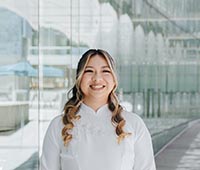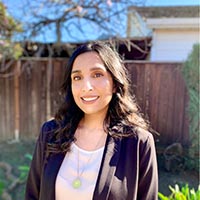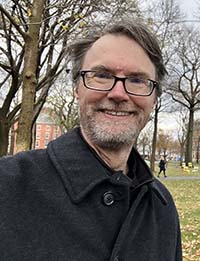This Semester's Workshops
Building a Confident and Smooth Transition to APA-Style Writing (Offered Online, via
Zoom)
With Amy Nguyen, Department of Psychology, and Eva Chan, EOP Transfer Connect
 In our experiences of working with transfer students (i.e., in the classroom and at
advising sessions), we have observed that many transfer students within disciplines
that use APA-style writing feel pressure and unprepared when it comes to writing in
the APA format upon transferring to SJSU. One potential challenge is the transition
from using the MLA format and other writing formats for their prior coursework at
community colleges to using APA-style. This transition can be abrupt and confusing,
especially if transfer students were not exposed to APA-style writing at their prior
institutions. The goal of this research project was to help transfer students achieve
a smooth and confident transition to APA-style writing through engaging and interactive
writing exercises provided throughout the workshop series in addition to learning
from their coursework.
In our experiences of working with transfer students (i.e., in the classroom and at
advising sessions), we have observed that many transfer students within disciplines
that use APA-style writing feel pressure and unprepared when it comes to writing in
the APA format upon transferring to SJSU. One potential challenge is the transition
from using the MLA format and other writing formats for their prior coursework at
community colleges to using APA-style. This transition can be abrupt and confusing,
especially if transfer students were not exposed to APA-style writing at their prior
institutions. The goal of this research project was to help transfer students achieve
a smooth and confident transition to APA-style writing through engaging and interactive
writing exercises provided throughout the workshop series in addition to learning
from their coursework.
Our presentation will provide an overview of the four-part APA workshop series that was provided to transfer students (starting with the Fall 2025 cohort) in collaboration with the EOP Transfer Connect program at SJSU. We will also provide our findings from an amalgamation of pre-/post- workshop(s) surveys from students who attended the live sessions and post-workshop(s) feedback from students who utilized the recordings of their selected workshop(s).
Project Presentation Dates and Times
Thursday, March 12, 11:00am - 12:00pm
Friday, April 10, 11:00am - 12:00pm
Thursday, April 16, 10:30am - 11:30am
Sign Up For Presentation Session(s) Here
Spring 2026 Generative AI For Writing Instructors (Offered On Campus, In Person Only)
Workshop is full. Look for us again in Fall 2026.
A special grant-funded, intensive workshop on AI and its potential uses in writing
and writing-intensive classrooms. With $2,000 stipend.
With Seher Vora, SJSU Writing Center, and Tom Moriarty, Director of Writing Across
the Curriculum
 Please join us for a special 8-week, intensive workshop on AI and its possible uses
in the classroom, made possible by a CSU AI Educational Innovations Challenge Award
grant. For the first four weeks of the workshop, participating faculty will play the
role of students in an AI-infused writing classroom, where you will learn how to use
a variety of AI tools – particularly ChatGPT Edu, which is available to all CSU students
and faculty, and Google's Gemini, which is available to all San José State students
and faculty – and use them to complete a short writing assignment.
Please join us for a special 8-week, intensive workshop on AI and its possible uses
in the classroom, made possible by a CSU AI Educational Innovations Challenge Award
grant. For the first four weeks of the workshop, participating faculty will play the
role of students in an AI-infused writing classroom, where you will learn how to use
a variety of AI tools – particularly ChatGPT Edu, which is available to all CSU students
and faculty, and Google's Gemini, which is available to all San José State students
and faculty – and use them to complete a short writing assignment.
 For the second four weeks of the workshop, we will critically reflect on our experience
and brainstorm ways to incorporate AI tools into our own classrooms. We will revise
course syllabi and develop new and innovative writing assignments that teach students
how to ethically and productively integrate AI into their own writing processes. Two
Writing Center tutors, undergraduate students themselves, will join us in the workshops,
where they will work alongside us to complete the short writing assignment and provide
critical feedback from a student perspective on our ideas for integrating AI into
our own courses.
For the second four weeks of the workshop, we will critically reflect on our experience
and brainstorm ways to incorporate AI tools into our own classrooms. We will revise
course syllabi and develop new and innovative writing assignments that teach students
how to ethically and productively integrate AI into their own writing processes. Two
Writing Center tutors, undergraduate students themselves, will join us in the workshops,
where they will work alongside us to complete the short writing assignment and provide
critical feedback from a student perspective on our ideas for integrating AI into
our own courses.
This workshop will meet in person on Wednesday afternoons, for a total of eight times. It will meet on the following dates:
Wednesday, February 25
Wednesday, March 4
Wednesday, March 11
Wednesday, March 18
Wednesday, March 25
Wednesday, April 1 -- Spring Break (No Meeting)
Wednesday, April 8
Wednesday, April 15
Wednesday, April 22
Participating faculty will receive a $2,000 stipend. Participating faculty will be expected to attend and participate in all workshop meetings; write and revise a short essay using AI tools; revise a syllabus and 2-3 writing assignments from a writing or writing-intensive course; and complete all data collection activities (which includes three short surveys and two short interviews).